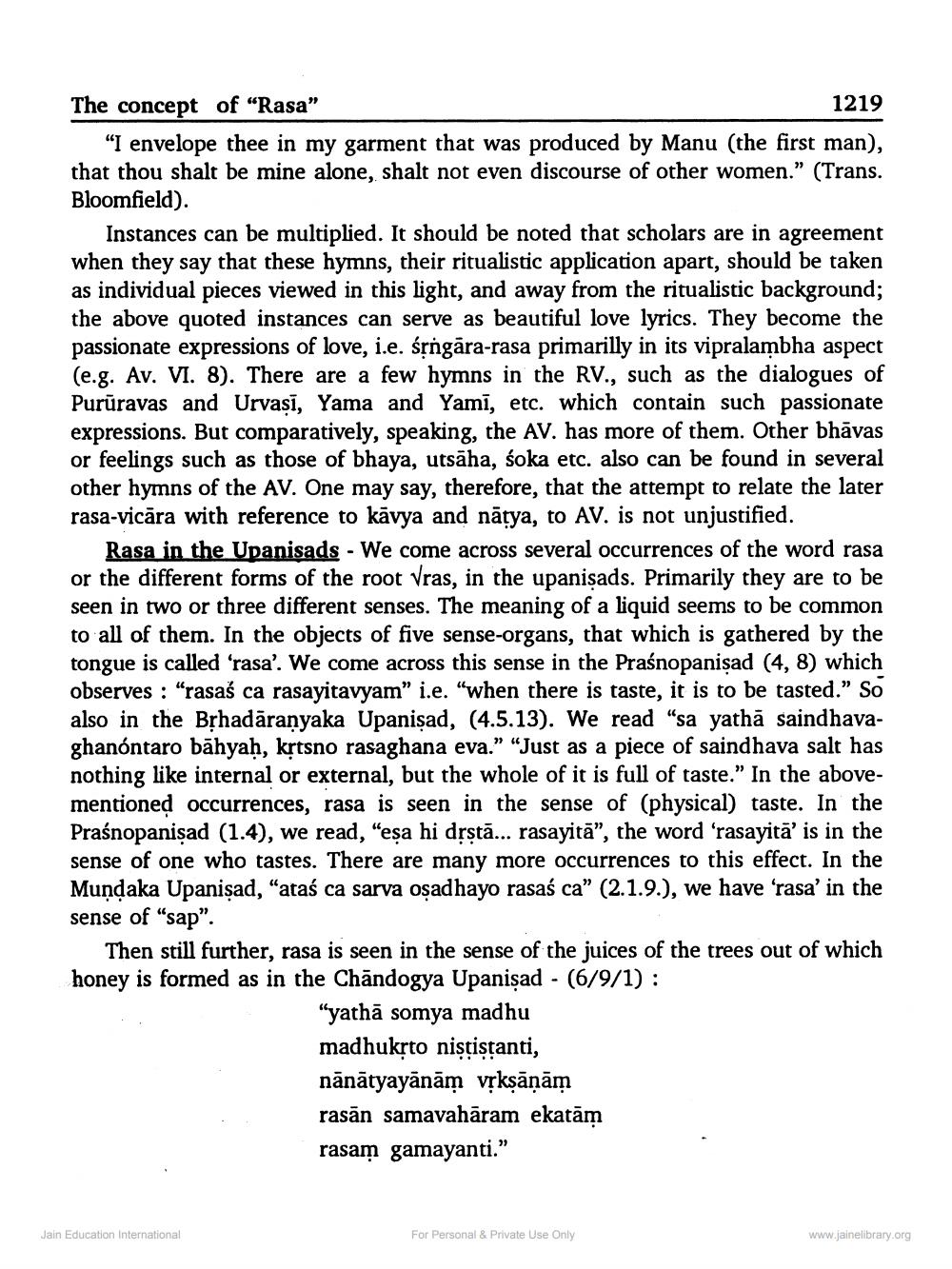________________
The concept of “Rasa”
1219
"I envelope thee in my garment that was produced by Manu (the first man), that thou shalt be mine alone, shalt not even discourse of other women." (Trans. Bloomfield).
Instances can be multiplied. It should be noted that scholars are in agreement when they say that these hymns, their ritualistic application apart, should be taken as individual pieces viewed in this light, and away from the ritualistic background; the above quoted instances can serve as beautiful love lyrics. They become the passionate expressions of love, i.e. śộngāra-rasa primarilly in its vipralambha aspect (e.g. Av. VI. 8). There are a few hymns in the RV., such as the dialogues of Purūravas and Urvasī, Yama and Yamī, etc. which contain such passionate expressions. But comparatively, speaking, the AV. has more of them. Other bhāvas or feelings such as those of bhaya, utsäha, śoka etc. also can be found in several other hymns of the AV. One may say, therefore, that the attempt to relate the later rasa-vicāra with reference to kävya and närya, to AV. is not unjustified.
Rasa in the Upanisads - We come across several occurrences of the word rasa or the different forms of the root vras, in the upanisads. Primarily they are to be seen in two or three different senses. The meaning of a liquid seems to be common to all of them. In the objects of five sense-organs, that which is gathered by the tongue is called 'rasa'. We come across this sense in the Praśnopanişad (4,8) which observes : “rasaś ca rasayitavyam" i.e. "when there is taste, it is to be tasted.” So also in the Brhadāranyaka Upanişad, (4.5.13). We read “sa yathā saindhavaghanóntaro bāhyah, krtsno rasaghana eva.” “Just as a piece of saindhava salt has nothing like internal or external, but the whole of it is full of taste.” In the abovementioned occurrences, rasa is seen in the sense of (physical) taste. In the Praśnopanisad (1.4), we read, “esa hi drstā... rasayitā”, the word 'rasayitā' is in the sense of one who tastes. There are many more occurrences to this effect. In the Mundaka Upanisad, "ataś ca sarva osadhayo rasas ca" (2.1.9.), we have 'rasa' in the sense of "sap".
Then still further, rasa is seen in the sense of the juices of the trees out of which honey is formed as in the Chāndogya Upanişad - (6/9/1):
"yathā somya madhu madhuksto nististanti, nānātyayānām vřkṣāņām rasān samavahāram ekatām rasam gamayanti.”
Jain Education International
For Personal & Private Use Only
www.jainelibrary.org




